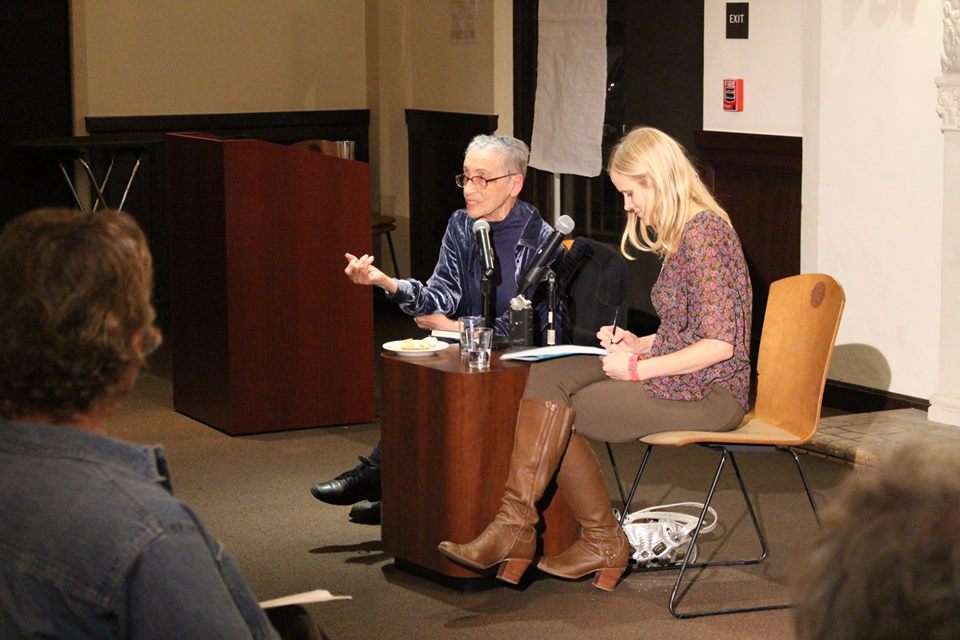Episodes

Monday Apr 30, 2018

Wednesday Apr 18, 2018
#Me Too
Wednesday Apr 18, 2018
Wednesday Apr 18, 2018
A decade before Alissa Milano tweeted the words #MeToo, Tarana Burke had started a 'Me Too' movement. In a sense Alissa's posts put the spotlight on Burke's work and forced the issue back to the forefront. This is a snippet of an interview that put the issue back in the forefront.

Monday Apr 16, 2018
Democracy Now!s Juan Gonzalez inspires SMC community to stay engaged
Monday Apr 16, 2018
Monday Apr 16, 2018
A few dozen students, alums, faculty, staff and friends of Saint Mary's College braved the rain in early April to spend time with critically acclaimed Democracy Now! Journalist Juan Gonzalez. The group left with inspiration about how to pay Gonzalez's message and agenda and mission to create a more inclusive, just world forward.

Saturday Mar 31, 2018
Jean Harper, Author of 'Still Life with Horses'
Saturday Mar 31, 2018
Saturday Mar 31, 2018
Jean Harper describes her journey of discovering the depths of unconditional love and the her inner strength and resiliency through a horse. Listen to the inspiring story of the 2017 Howlingbird Press non-fiction award winning author.

Monday Mar 26, 2018
Lindsey Roselini's acco
Monday Mar 26, 2018
Monday Mar 26, 2018
Lindsey Rosellini graduated from SMC with a communications degree in 2007 and found her professional bliss as a lawyer, advocating for other marginalized populations.

Sunday Feb 18, 2018
Betty Reid Soskin Signs Her Name to Freedom
Sunday Feb 18, 2018
Sunday Feb 18, 2018
Betty Reid Soskin launched her national tour for her memoir 'Sign my Name to Freedom' at Saint Mary's College of California. At 96, Betty says she is a living history.

Monday Jan 15, 2018

Saturday Jan 13, 2018

Saturday Oct 14, 2017
Conversation with Poet and Reproductive Justice Activist Kathy D' Arcy
Saturday Oct 14, 2017
Saturday Oct 14, 2017
Kathy D' Arcy describes the reproductive human rights challenges women are facing in Ireland and the role U.S. based anti-choice groups have played in the matter. As a writer and an advocate for young moms, Kathy takes on women's rights in all spheres of her life.

Friday Jul 01, 2016
Betty Reid Soskin
Friday Jul 01, 2016
Friday Jul 01, 2016

